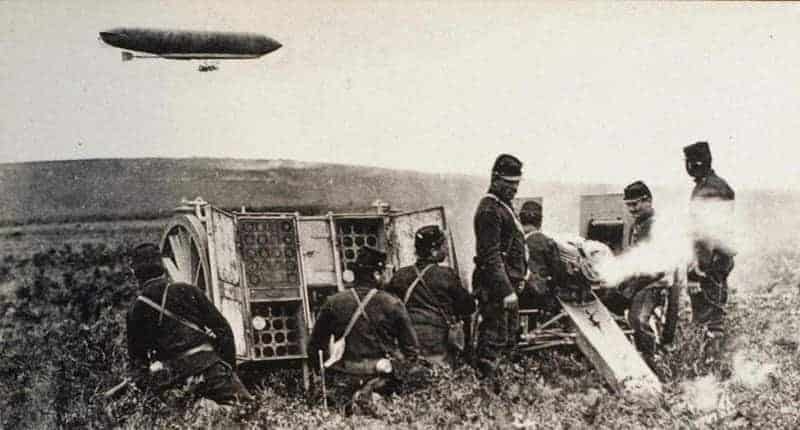In 1914 Europe was on the brink. Tensions over the control of colonies, trouble in the Balkans, and a system of interlocking alliances had destabilized the continent. The bulk of the public on all sides expected war, but most clung to the fanciful belief that the coming war would be short and glorious. Instead, the Great War introduced the horrors of industrial slaughter to the world, traumatizing a generation and unleashing a string of revolutions that would transform Russia, Germany, and the Ottoman Empire. These are the battles that defined that conflict and determined its ultimate conclusion.

The Battle of the Marne
The German Supreme Army Command was terrified by the prospect of having to fight a war on two fronts against both France and Russia. They knew, though, that if it came to war Russia, with its vast size and underdeveloped transportation infrastructure, would be much slower to mobilize its military than either France or Germany. Consequently, the Germans settled on a war plan that called for the commitment of the vast majority of their military to an attack on France right at the outset of the war in order to knock them out of the fight before the Russians could fully field their army.
Once Russia began its mobilization at the end of July 1914, the Germans put their plan into action, declaring war on Russia and France. They did not invade France across their shared border, however, electing instead to strike through Belgium in order to bypass French fortifications. Much to the Germans’ surprise, the Belgians managed to hold them up for the better part of a month, burning precious time. Worse still, the British, who had guaranteed Belgian neutrality, honored their commitment and entered the war against Germany following the invasion of Belgium.
Despite these setbacks, after conquering Belgium the Germans bore down on France, pushing the French and their new British allies into a rapid retreat. The French and British, recognizing that they would have to stop and make a stand or risk losing Paris, chose the River Marne as the place where they would contest the German invasion. As the Germans approached the Marne in early September, reconnaissance aircraft spotted a hole in the German lines, and on September 6 the French and British threw everything that they had at that weak point. They even requisitioned Parisian taxis to shuttle troops to the front.
The attack was largely successful, breaking through the German line and threatening two German armies with encirclement or destruction. The Germans were forced to pull back forty miles in order to avert catastrophe, and as they began to dig trenches to defend against the French and British advance their commander, Helmuth von Moltke, suffered a nervous breakdown and had to be replaced. “The miracle of the Marne,” as the French and British would call it, saved Paris and was the first step in transforming the First World War from a war of movement into one characterized by bloody trench warfare.

